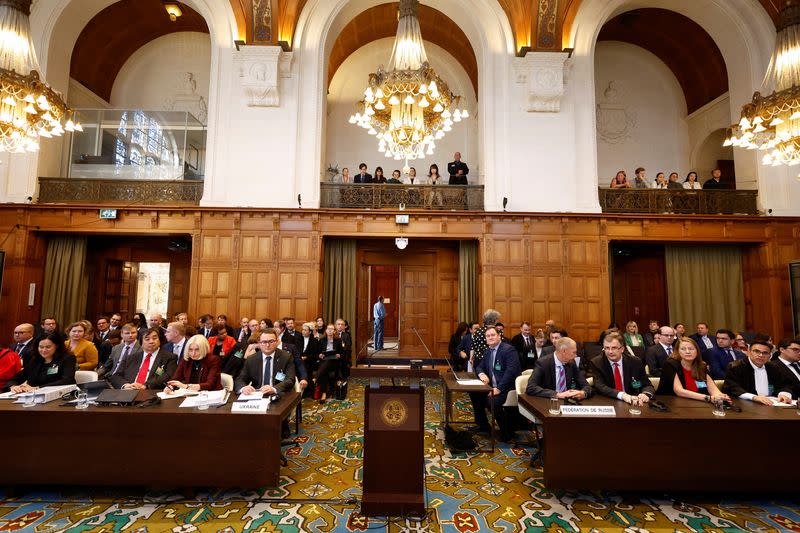Ukraine allies back Kyiv's genocide challenge against Russia at World Court

THE HAGUE (Reuters) -More than two dozen European states, as well as Australia and Canada, on Wednesday asked the World Court to determine that it has jurisdiction in a case brought by Kyiv alleging that Russia abused the Genocide Convention to provide a pretext for the invasion of Ukraine.
Ukraine brought the case to the International Court of Justice (ICJ), the highest U.N. court for disputes between states, days after Russia launched a full-scale war on its smaller neighbour on Feb. 24 last year.
Germany told judges the countries "strongly believe" the court has jurisdiction. German representative Wiebke Ruckert said her country had a strong interest in how the genocide treaty was interpreted "not least in view of our past."
Kyiv argues that Russia is abusing the 1948 U.N. Genocide Convention, adopted in the aftermath of World War Two, by saying the invasion was justified to stop an alleged genocide in eastern Ukraine.
All 32 states who spoke at the World Court on Wednesday urged judges to take the case forward to the merits stage. This unprecedented number of intervening countries is a strong show of support for Kyiv, which said it will seek reparations if the court's final ruling is in its favour.
Some 150 states have signed the Genocide Convention and as such have an interest in how it should be interpreted by the court.
Britain's attorney general, Victoria Prentis, told journalists after the hearing that she "very much hopes" the court will rule the case can go forward.
Russia asked the court on Monday to throw out the case, claiming Kyiv's legal arguments were "hopelessly flawed" and that Moscow had not actually invoked the genocide treaty when it used the term genocide.
Ukraine says there was no risk of genocide in eastern Ukraine, where it had been fighting Russian-backed forces since 2014. The convention defines genocide as crimes committed "with intent to destroy, in whole or in part, a national, ethnical, racial or religious group, as such."
(Reporting by Stephanie van den Berg in the HagueEditing by Anthony Deutsch, Alexandra Hudson and Matthew Lewis)


